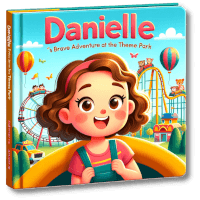Reading with children
a blog by Magic Tales

Little Truth Tellers: Exploring Honesty through Children's Literature
Books are magical keys that unlock the doors to unknown worlds and new perspectives. They lay the foundation for morals, values and life lessons. Among these lessons, fostering honesty is an essential milestone in a child's development. But have you ever wondered, how does children's literature shape a child's understanding of honesty?
Firstly, let's unveil the psychological aspect. According to Psychology, children begin to lie from around 2 to 3 years old, which not surprisingly, coincides with the development of their cognitive functions. These 'cute little lies' are often seen as a result of their blooming imagination. However, it is important to guide them towards honesty. That's where children's books play an instrumental role.
The charm of children’s literature is its simplicity and directness. Themes and messages in the narrative are represented clearly, without complex adult doublespeak. Through telling stories where characters are rewarded for honesty or face consequences for dishonesty, these books make the concept of honesty relatable and understandable to children.
For example, consider the tale of 'The Boy Who Cried Wolf'. An age-old story that teaches children that dishonesty can lead to loss of trust and eventual disaster. Similarly, 'The Emperor's New Clothes' reveals the truth about courage and the importance of speaking the truth, irrespective of public opinion. Even classics like 'Pinocchio', show the transformation of a puppet-boy who lies often into a 'real' boy, once he learns the value of honesty.
Children's literature also helps children practice empathy and moral judgment. When a character encounters a situation involving a moral dilemma, children put themselves in that character's shoes. They begin to understand the character's thoughts, feelings, and events in the context of their actions.
In 'Eli's Lie-O-Meter: A Story About Telling the Truth', a young boy who often exaggerates discovers a Lie-O-Meter that rises every time he tells a lie. He goes through experiences that teach him the importance of truth-telling and the negative consequences of lying. Children reading this book will start to resonate with Eli and begin practicing honesty themselves.
In conclusion, children’s literature is a powerful tool for nurturing honesty. By painting vivid pictures of characters grappling with honesty, children's books can shape a child's understanding of honesty and empower them to be honest in their own lives. So, consider sprinkling your child's bookshelf with a fair share of literature that emphasizes the value of honesty. Because, remember, it's the kids who are immersed in books today that will form an honest society tomorrow!
Want a personalized book to read with your child about Honesty?
Takes as quickly as 30 seconds to create
Create a book about Honesty

